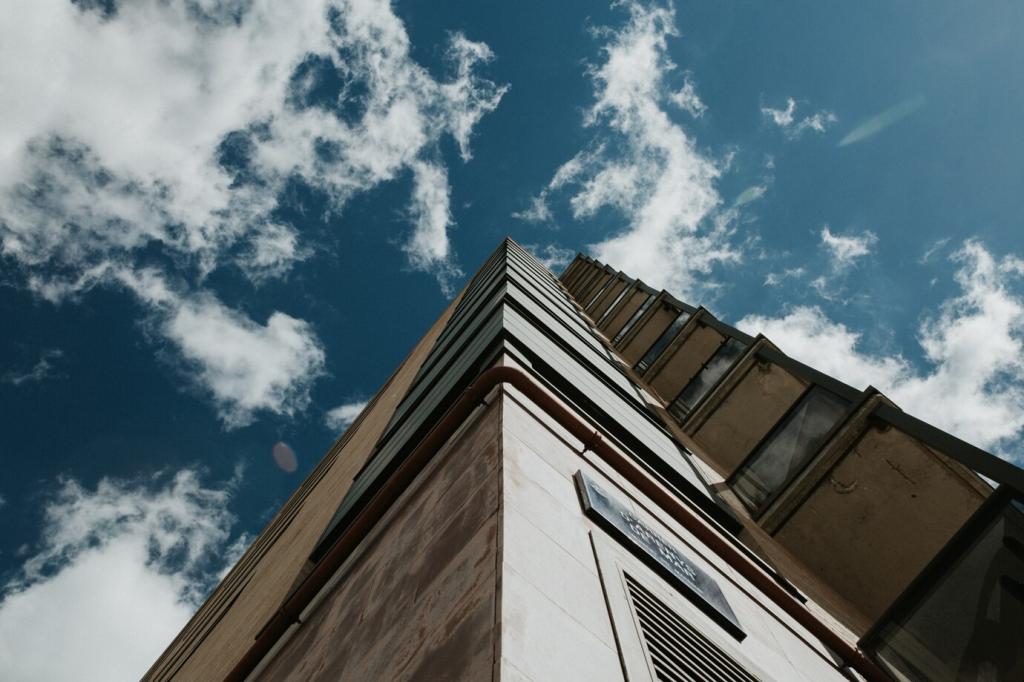
Water Conservation Solutions in Home Renovation
Sustainable home renovation increasingly prioritizes the conservation of water, both to preserve the environment and to enhance household efficiency. Thoughtful water conservation measures not only reduce utility bills but also support a healthier planet by lessening demand on municipal water supplies. Modern renovation practices provide innovative opportunities to incorporate water-saving technologies and strategies without compromising comfort or style. Homeowners can benefit from a thorough understanding of available solutions as they plan their next home improvement project, making every drop count in their daily lives.
Previous
Next
Greywater Recycling Systems
Greywater, the gently used water from sinks, showers, and washing machines, can be collected and repurposed for tasks such as irrigation or toilet flushing. Installing a greywater system during home renovation involves routing waste water through a filtration process before directing it to approved secondary uses. This approach not only decreases demand on fresh water supplies, but also helps reduce wastewater volumes sent to municipal treatment plants. While installation must adhere to local plumbing codes and health regulations, a properly designed greywater recycling system can cut total household water usage by up to fifty percent, making it a highly impactful renovation addition.
Rainwater Harvesting
Rainwater harvesting systems collect and store rainwater that falls on the roof, making it available for irrigation, outdoor cleaning, or even indoor non-potable uses. Such systems typically consist of catchment areas, filtration units, and storage tanks. Integration into a renovation project involves planning for gutters, downspouts, and underground or above-ground reservoirs. By reducing dependence on municipal water, rainwater harvesting can lower utility costs while fostering resilience to drought conditions. Additionally, this naturally soft water is ideal for garden use, promoting healthier plant growth and reducing reliance on treated tap water.
Water Recirculation Units
Point-of-use water recirculation units ensure that hot water arrives instantly at showers and sinks, eliminating the need to run taps while waiting for water to heat up. These systems operate by continuously cycling cool water back to the heater until the temperature rises to the desired level. Incorporating a recirculation unit into a home renovation not only enhances comfort and convenience, but also dramatically curbs the wasteful practice of letting gallons of water flow unused down the drain. Over time, this targeted technology adds up to impressive overall savings and supports a more sustainable household operation.
Outdoor Water Conservation Strategies
01
Drought-Tolerant Landscaping (Xeriscaping)
Xeriscaping refers to landscaping designs that require little or no supplemental irrigation, relying instead on drought-tolerant native plants. Renovation projects can transform traditional lawns into sustainable, resilient gardens by selecting species adapted to local climate conditions. Careful grouping of plants with similar water needs and thoughtful use of mulches further minimizes evaporation and reduces the necessity for regular watering. Xeriscaping not only conserves water and saves money, but also supports biodiversity by providing habitat for pollinators and other native wildlife.
02
Efficient Irrigation Systems
Efficient irrigation systems, such as drip irrigation and smart controllers, deliver water directly to plant roots with minimal waste. Drip systems prevent runoff and evaporation by supplying low volumes of water precisely where needed, while smart controllers use weather data and soil moisture sensors to optimize watering schedules. Retrofitting existing irrigation or installing new, efficient systems during home renovation translates to reduced water bills and greener, healthier landscapes. Properly designed, these systems take the guesswork out of outdoor watering and maximize water use efficiency throughout the growing season.
03
Permeable Paving Solutions
Standard impervious surfaces like concrete and asphalt prevent rainwater from infiltrating the ground, increasing runoff and depriving landscapes of natural hydration. Permeable paving solutions allow rainfall to soak into the soil, replenishing groundwater and reducing the need for supplemental irrigation. Options include permeable concrete, interlocking pavers, and gravel beds, all of which can be incorporated into driveways, patios, and walkways during home renovation. This approach not only manages stormwater more effectively but also creates attractive, functional outdoor surfaces that support sustainable water cycles.
